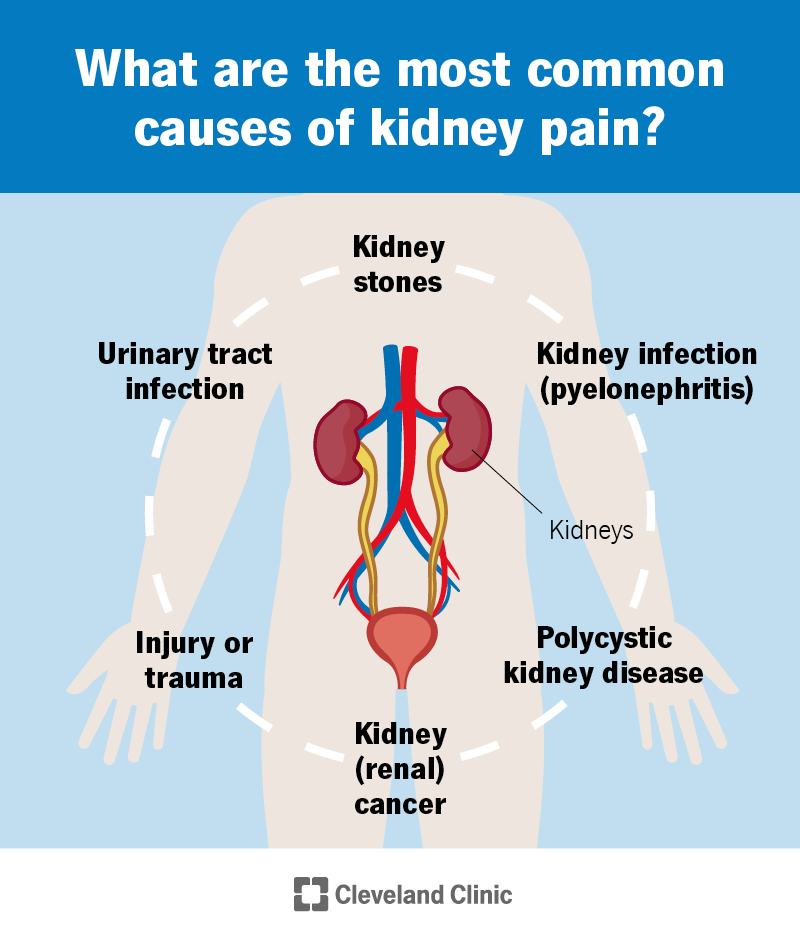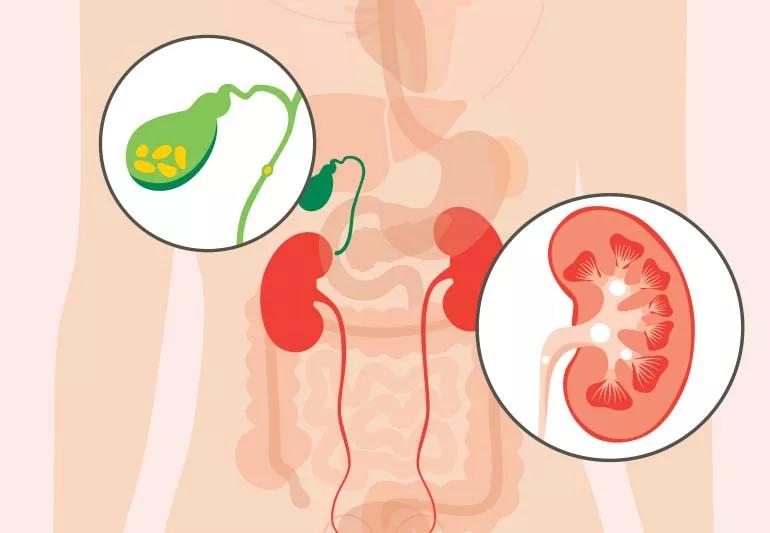Kidney Stones vs UTI: Expert Insights on Effects, Analysis, and Monitoring
Checking Out the Effects and Causes of Kidney Stones in Contrast to Urinary Tract Infections: A Comprehensive Overview
The expedition of kidney rocks and urinary system tract infections (UTIs) exposes a complex interaction of symptoms and underlying causes that warrant cautious examination. While both conditions can lead to hematuria, they present distinctive medical functions and develop from different etiological aspects. Understanding the nuances of each problem is important for effective diagnosis and administration. What are the essential distinctions in their symptoms, and exactly how might these inform therapy strategies? The responses to these concerns might give vital understandings right into the avoidance and care of these usual urological problems.
Summary of Kidney Stones
Kidney stones, also referred to as kidney calculi, kind when particular compounds in the pee crystallize and accumulation, bring about the advancement of hard down payments within the kidneys. These stones can differ in size, varying from a grain of sand to a golf sphere, and can be composed of different materials, one of the most typical being calcium oxalate, uric acid, struvite, and cystine. The formation of kidney rocks is affected by several variables, including dietary habits, fluid consumption, and hereditary tendency.
Signs and symptoms of kidney rocks may consist of serious pain in the back or side, blood in the pee, nausea, and frequent urination, specifically as the rock moves via the urinary tract. Medical diagnosis usually involves imaging researches such as ultrasound or CT scans, together with urinalysis to determine the rock's structure.
Therapy alternatives differ based on the dimension and sort of stone, as well as the seriousness of signs and symptoms (Kidney Stones vs UTI). Tiny stones may pass normally with raised liquid intake, while bigger rocks may require clinical treatments such as lithotripsy or surgical elimination. Comprehending the pathophysiology and danger variables related to kidney rocks is important for efficient prevention and administration
Summary of Urinary Tract Infections
Urinary tract infections (UTIs) are usual bacterial infections that affect any type of part of the urinary system, including the kidneys, ureters, bladder, and urethra. They predominantly happen when germs, often from the intestinal tract, go into the urinary system, leading to swelling and infection.
The frequency of UTIs is especially higher in females than guys, primarily as a result of physiological distinctions, such as a shorter urethra. Risk factors consist of sex, certain contraceptive methods, urinary retention, and dehydration. The medical diagnosis of UTIs is normally confirmed via urine examinations, which may expose the presence of microorganisms, leukocyte, or red blood cells.

Signs And Symptoms of Kidney Stones
The pain related to kidney stones can manifest in different methods, often leading people to look for clinical interest. One of one of the most common signs is serious pain, usually localized in the reduced back or side, which may emit to the abdominal area or groin. This pain, typically called sharp or cramping, can take place instantly and might rise and fall in strength.
Additionally, individuals might experience hematuria, or blood in the urine, which can vary from microscopic total up to noticeable discoloration. This sign might be accompanied by adjustments in urinary routines, such as boosted frequency or urgency, as well as discomfort throughout peeing. Queasiness and vomiting are also widespread, frequently resulting from the body's response to intense discomfort.
Sometimes, people might experience high temperature and chills, particularly if a second infection develops due to the blockage brought on by look at more info the stones. Overall, the combination of extreme pain, hematuria, transformed urinary system patterns, and intestinal signs can provide substantial insight right into the presence of kidney stones, warranting timely clinical analysis and intervention. Recognizing these symptoms is crucial for timely medical diagnosis and effective administration of the problem.
Signs of Urinary System Infections
Infections within the urinary system tract commonly offer a variety of unique signs and symptoms that can substantially affect every day life. The most common symptoms include a consistent desire to pee, often accompanied by a burning sensation throughout peeing, recognized as dysuria. People might also experience increased frequency of urination, producing percentages of urine each time.
Other noteworthy signs consist of cloudy or smelly pee, which may indicate the existence of bacteria or pus. Sometimes, pee may show up pink or red due to the existence of blood, a condition understood as hematuria. Additionally, people might experience pelvic pain or stress, which can More Bonuses additionally intensify the sensation of seriousness.
Systemic signs and symptoms might likewise materialize, such as fever, chills, and exhaustion, especially if the infection has actually ascended to the kidneys. It is vital to recognize these signs early, as neglected urinary tract infections can cause more serious issues. Kidney Stones vs UTI. Trigger medical focus is encouraged when these symptoms are observed, enabling for proper diagnostic examination and treatment to minimize pain and avoid further wellness concerns
Reasons of Each Problem
Regularly, kidney stones and urinary system system infections develop from distinct yet often overlapping causes that can affect individuals in different ways. Kidney stones normally develop because of metabolic variables, dietary selections, and genetic proneness. Boosted levels of calcium, oxalate, or uric acid in the pee can cause stone development. Dehydration, insufficient liquid intake, and high-sodium diets can intensify these conditions, advertising condensation within the urinary system system.

Comprehending these unique causes is essential for avoidance and therapy. Kidney Stones vs UTI. While way of living alterations might reduce the risk of kidney stones, appropriate hygiene and punctual therapy of urinary tract infections are important for reducing their reoccurrence and connected issues
Conclusion
In recap, kidney stones and urinary system tract infections present distinctive try this symptoms and underlying reasons. Kidney stones are defined by extreme discomfort and metabolic aspects, while urinary system system infections mainly include microbial infections bring about urinary system seriousness and discomfort. Both conditions can result in hematuria, their development systems vary substantially. Comprehending these distinctions is critical for efficient diagnosis and treatment, ultimately enhancing patient outcomes for those affected by either problem.
The expedition of kidney rocks and urinary system infections (UTIs) exposes an intricate interplay of symptoms and underlying reasons that call for mindful examination.Urinary tract infections (UTIs) are typical microbial infections that affect any type of component of the urinary system, consisting of the kidneys, ureters, bladder, and urethra.Often, kidney stones and urinary system tract infections arise from unique yet often overlapping reasons that can impact individuals in different ways.In recap, kidney stones and urinary tract infections present distinctive signs and underlying causes. Kidney rocks are characterized by extreme discomfort and metabolic variables, while urinary system tract infections mainly entail bacterial infections leading to urinary system necessity and pain.